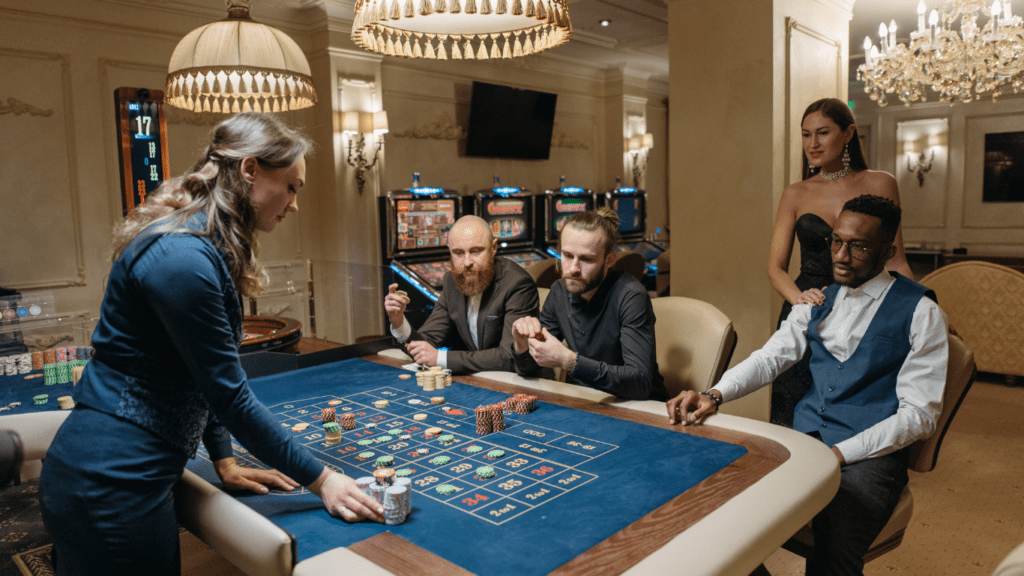Understanding Gambling Addiction
Gambling addiction transforms leisure into detrimental behavior, affecting every aspect of one’s life. Recognizing this transformation is crucial to addressing the problem effectively.
Definition and Warning Signs
Gambling addiction, or compulsive gambling, is the uncontrollable urge to gamble despite harmful consequences. The American Psychiatric Association classifies it as a mental health disorder akin to other addictive behaviors. Key warning signs include preoccupation with gambling, the need to gamble with increasing amounts of money, and unsuccessful attempts to cut back. It often leads to lying to hide gambling activity and jeopardizing significant relationships or opportunities due to gambling.
Types of Gambling and Their Impact
Different gambling forms present unique challenges, each impacting individuals in various ways. Casino games, like:
- slot machines
- blackjack
often lead to addiction due to the rapid play and frequent reward cycles. Online gambling provides anonymity, increasing addiction risk by offering easy access. Sports betting ties emotional involvement to potential financial gain, creating a unique form of attachment. Each type can result in financial instability, relationship breakdowns, and mental health issues, such as anxiety and depression.
Psychological and Social Factors

Psychological and social factors significantly affect gambling addiction. Understanding these influences helps in addressing and mitigating its impact.
The Role of Mental Health
Mental health issues contribute to gambling addiction. Anxiety and depression often coexist with compulsive gambling. Individuals turn to gambling for emotional relief, leading to dependency. Impulsive behaviors and lack of self-control, associated with personality disorders, exacerbate addiction. Addressing underlying mental health conditions enhances treatment effectiveness and recovery prospects.
Influence of Social Environment
- The social environment shapes gambling tendencies.
- Peer pressure plays a vital role when individuals feel compelled to gamble to fit into social circles.
- Access to gambling through advertisements and online platforms normalizes it as entertainment, increasing risk exposure.
- Social isolation intensifies the reliance on gambling for social interaction, highlighting the need for supportive community structures to counteract addiction.
The Cycle of Addiction
Understanding the cycle of gambling addiction helps to identify key patterns that perpetuate the behavior. Recognizing these patterns can guide intervention strategies and promote recovery.
Triggers and Risk Factors
Gambling addiction often begins with specific triggers and risk factors that increase vulnerability. Triggers can include stress, boredom, or exposure to gambling environments like casinos and online platforms. Individuals facing financial difficulties may see gambling as a solution due to potential monetary rewards. Genetic predispositions and family histories of addiction also elevate risk. Media portrayal and societal norms can make gambling appear glamorous, enticing individuals to indulge.
Consequences on Personal Lives
Gambling addiction wreaks havoc on personal lives. Relationships suffer as trust erodes, and individuals may engage in deceit to hide their gambling habits. Financial instability becomes a pressing issue when debts accumulate, leading to potential loss of assets. Emotional wellbeing is severely impacted, often resulting in increased anxiety and depression. As addiction progresses, job loss or deteriorating work performance can occur. Family dynamics strain under the pressure, leaving loved ones distressed and anxious about the gambler’s choices.
Treatment and Recovery Options
Transforming from addiction to recovery requires understanding the various avenues available for effective treatment and support. Those facing gambling addiction can access a range of professional and communal resources.
Professional Help and Therapy
- Licensed therapists and counselors offer a structured approach to overcoming gambling addiction.
- Cognitive-behavioral therapy (CBT) helps individuals identify and challenge the thought patterns fueling their compulsive behaviors.
- A study by the National Institutes of Health found that CBT significantly improves gambling behaviors.
- In some cases, medications like antidepressants or mood stabilizers are prescribed to address underlying mental health conditions exacerbating the addiction.
Support Groups and Resources
Support groups like Gamblers Anonymous provide a community-based solution for those seeking recovery. These groups offer a sense of belonging and accountability, which is crucial for recovery. Participants share experiences and strategies in overcoming challenges, reinforcing the notion that recovery is achievable. Additionally, resources such as hotlines and online forums provide round-the-clock support and information, catering to those who need immediate assistance or anonymity.
Prevention and Awareness
Addressing gambling addiction involves proactive strategies and the promotion of responsible gambling to reduce its harmful effects.
Strategies to Reduce Risk
Several strategies effectively reduce the risk of developing gambling addiction. Setting strict time and monetary limits is essential for maintaining control over gambling activities. Utilizing self-exclusion programs helps individuals voluntarily ban themselves from gambling venues and online platforms. Educating oneself on the odds and understanding that gambling is not a reliable way to make money can also deter addictive behaviors. Stress management and engaging in alternative recreational activities provide outlets for emotions and reduce dependency on gambling as an emotional escape.
Promoting Responsible Gambling
Responsible gambling education plays a crucial role in prevention. Campaigns and educational programs in schools and communities raise awareness about the potential risks of gambling. Regulations mandating transparent advertising practices help inform gamblers about the real risks associated with gambling activities. Casinos and betting platforms should provide resources and information on responsible gambling practices, ensuring patrons understand the importance of moderation. Additionally, encouraging open dialogue about gambling habits within families and among peers creates a supportive environment where individuals can seek help without stigma.



 Cher Peters – Senior Gambling Strategist & Responsible Gaming Advocate
Cher Peters plays a pivotal role as the Senior Gambling Strategist, combining her extensive knowledge of gaming tactics with a commitment to responsible gambling. She specializes in crafting comprehensive guides and strategic tips designed to help players make informed, enjoyable gaming choices. Cher’s content spans from beginner-friendly tutorials to advanced playing techniques, helping players maximize their potential for success while remaining mindful of responsible gaming principles. Her expertise is particularly valued by players seeking to balance excitement with safety, making her an essential voice on Casino Champs Fortune.
Cher Peters – Senior Gambling Strategist & Responsible Gaming Advocate
Cher Peters plays a pivotal role as the Senior Gambling Strategist, combining her extensive knowledge of gaming tactics with a commitment to responsible gambling. She specializes in crafting comprehensive guides and strategic tips designed to help players make informed, enjoyable gaming choices. Cher’s content spans from beginner-friendly tutorials to advanced playing techniques, helping players maximize their potential for success while remaining mindful of responsible gaming principles. Her expertise is particularly valued by players seeking to balance excitement with safety, making her an essential voice on Casino Champs Fortune.
